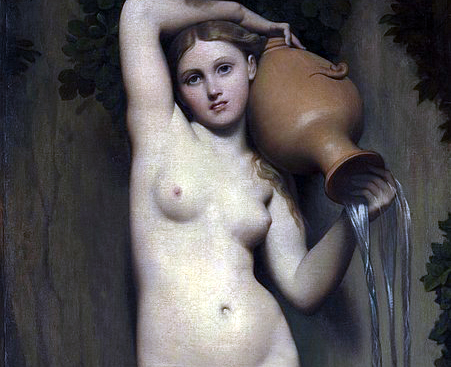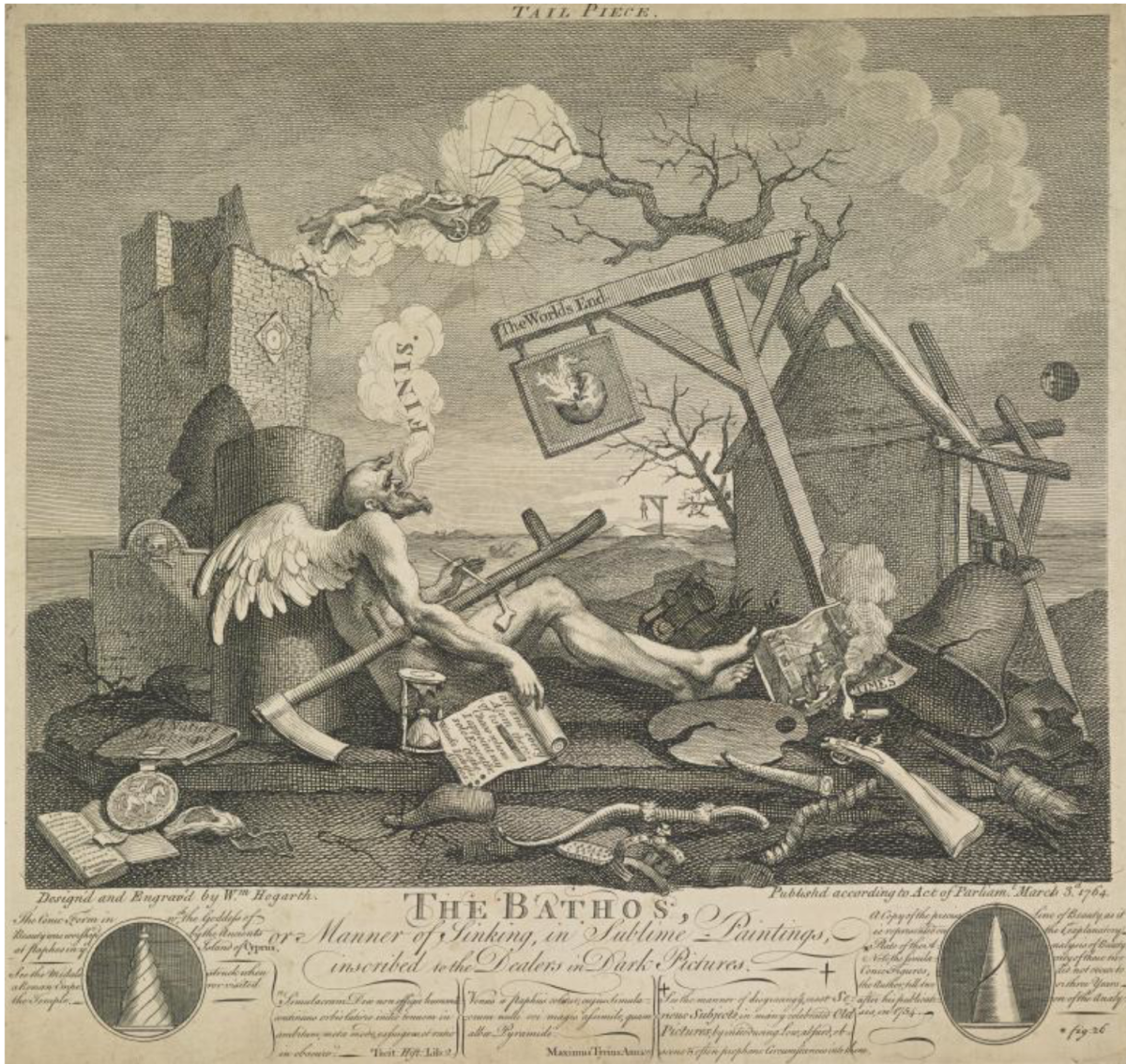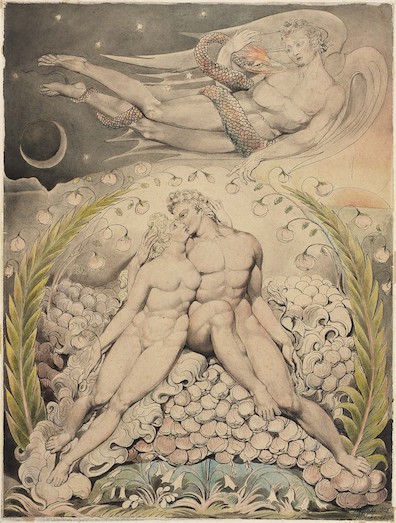
In 1727, Alexander Pope coined the literary term bathos in his short polemic essay ‘Peri Bathous, or The Art of Sinking in Poetry’. To him, the word meant a failed attempt at sublimity, or a sudden transition from a lofty style or grand topic to a common or vulgar one. The effect is one of anti-climax. For Pope, it violated ‘decorum’ and the fittingness of subject. In a modernist context bathos suggests an irreverent attitude towards our cultural heritage; it is mixing learning with bawdiness and confronting the serious with the frivolous, the lofty with the vulgar, or the revered with the ridiculous. James Joyce was a master of the bathetic.

Leopold Bloom in Ulysses is a middle-aged Jewish advertising salesman who seeks commissions from small businesses, designs imagery and copy, and negotiates its placing in Dublin newspapers. At the same time, he has literary ambitions. Explaining the term ‘metempsychosis’ to his wife Molly who had come across the word in a popular novel, he points to a picture named ‘The Bath of the Nymph’ which is framed above the marital bed in order to illuminate the finer detail of his argument. The print itself, in spite of its Classical allusion, was a handout given to those who had bought the Easter number of the softcore weekly magazine Photo Bits – Joyce uses pornography in aid of exploring Greek philosophy. The intellectual high and low are entangled in a single passage. Time and again, Joyce counter-balanced erudition with aspects of popular urban culture such as sexy peephole machines, music-hall tunes, or naughty images – Ulysses may follow the structure of Homer’s Odyssey, but it is the (erotic) vibrancy of the modern city not a legendary past that captured the author’s creative attention.

Bathos in Ulysses works at a more subtle level. A particular reference in the ‘Calypso’ episode is a literary one, its location less elevated. Seated on the loo, Leopold Bloom opens an old issue of the penny weekly Titbits, taking his time to read the columns of its main story, and allowing his bowels to release the constipation he had suffered from the previous day: ‘Asquat on the cuckstool he folded out his paper, turning its pages over on his bared knees. Something new and easy. No great hurry. Keep it a bit. Our prize titbit: Matcham’s Masterstroke. Written by Mr Philip Beaufoy, Playgoers’ Club, London. Payment at the rate of one guinea a column has been made to the writer. Three and a half. Three pounds three. Three pounds, thirteen and six’. Bloom admires Beaufoy. He dreams of writing a story himself and of emulating the author of a series of prize-winning contributions. The magazine was known for sponsoring competitions. P.G. Wodehouse, Joseph Conrad, Virginia Woolf, and D.H. Lawrence all submitted stories seduced by the financial reward (young Joyce himself once planned to contribute a story). The wish to write a story returns in the ‘Circe’ episode. Bloom imagines a literary trial against him in which he is attacked by Beaufoy for being a plagiarist and a fake author.

The real Philip Beaufoy was a hack, a writer of shoddy and melodramatic prose, of books for children, the author of practical handbooks such as How to Succeed as a Writer, and he was indeed a member of the Playgoers’ Club on the Strand (founded in 1884 with the aim of raising the status of traditionally rowdy playgoers). Beaufoy contributed articles, stories, and letters to various other periodicals at the turn of the century. He was a prolific writer of immediately forgettable fiction – the kind of author Joyce would have despised. And yet he was given a portrait in the Dublin gallery of characters to which Joyce introduced his readers. Who then was this Philip Beaufoy (also known as Philip Beaufoy Barry)? The family history is an extraordinary one.

Composer and piano teacher Michael Bergson was born Michał Bereksohn in Warsaw on 20 May 1820 into a prominent Jewish family. His great-grandfather Szmul Jakubowicz Sonnenberg, called Zbytkower, was a prominent banker and a protégé of Stanisław August Poniatowski, King of Poland from 1764 to 1795. He studied in Dessau and Berlin (under Chopin?) and started his career in Italy. In 1865 he was appointed Professor of Music at the Conservatory of Geneva. On the outbreak of the Franco-Prussian War in 1870, and living in Paris at the time, he took his family to London where he would stay for the rest of his life. He initially settled at no. 1 Ordnance Road, Marylebone (now: Ordnance Hill, St John’s Wood). In 1881 the family lived at no. 92 Percy Road, Hammersmith; by 1891 they had moved to no. 50 Alexander Road, Willesden. He worked as a piano teacher, composed, and promoted Chopin in Britain. His composition A Dream Wish was played at a Promenade concert in 1875. He wrote two operas and a large number of songs. One of his best-known pieces is the ‘Scena ed Aria’ for clarinet, was played by military bands throughout the world. His Islington-born wife Catherine [Kate] Levison, daughter of a Yorkshire surgeon and dentist, was from an Anglo-Irish Jewish background. The couple had seven children, three of which are worth mentioning in this context.

Mina [Minna] Bergson was born on 28 February 1865 in Geneva. She was still young when the family moved from Paris to Ordnance Road, Marylebone. At the age of fifteen Mina was admitted to the Slade School of Art, she shared a studio with Beatrice Offor, and became close friends with Annie Horniman who would later sponsor her research in the occult. In 1887 she met Samuel Liddell MacGregor Mathers [S.L. Mathers] who she married three years later in the library of the Horniman Museum, changing her name to Moina Mathers. Her partner was the founder of the Hermetic Order of the Golden Dawn of which she was the first initiate in March 1888. In their occult partnership, her husband was described as the ‘evoker of spirits’ and Moina as the clairvoyant ‘seeress’. In 1918, when her husband died, Moina took over the Rosicrucian Order of the Alpha et Omega, a successor organisation to the Golden Dawn, as its Imperatrix.

Mina’s younger brother Zaleq Philip Bergson was born in 1878 in London and educated at the City of London School. One of the great benefactors of the school had been Henry Benjamin Hanbury Beaufoy, a wealthy London distiller, Member of Parliament for Hackney Wick, and collector of books (copies from his library of the First Four Folio Editions of Shakespeare were auctioned separately by Christies in July 1912). The ambitious young author most likely considered this figure a role model and took his nom de plume from him. Both in the 1891 and 1901 census Philip was living at home at no. 92 Percy Street, Hammersmith. By then, his career as an author and journalist had taken off (he is mentioned in the 1933 edition of Who’s Who in Literature under the name of BARRY, Philip Beaufoy). There is evidence that there was some musical collaboration with his father. Beaufoy, the ‘old hag’ as he is referred to in Ulysses, made a prosperous career out of creating literary garbage. A notice of his death on 19 January 1947 in the London Gazette mentions his residence as the Heathfield Hotel in Guilford Street, Bloomsbury. He had previously resided at no. 31 Regent Square, Bloomsbury, one of London’s most desirable areas. James Joyce, the novelist who revolutionised fiction, had died six years earlier, half-blind and in poverty.
The Bergson clan that moved to Ordnance Road in 1870 included an eleven year old son. Henri Bergson had been born in Paris on 18 January 1859 (the year Darwin published On the Origin of Species) at Rue Lamartine, close to the Palais Garnier, the old opera house in the capital. Having entered the Lycée Fontanes (renamed Lycée Condorcet in 1883) in 1868, he returned to Paris to complete his studies and maintained his French citizenship. By 1900 he was a Professor at the Collège de France and one of Europe’s outstanding intellectuals. His mother being English, he was familiar with the language from an early age and he remained in close contact with Britain.

In 1889 Bergson published his doctoral thesis Essai sur les données immédiates de la conscience. The study was translated by Frank L. Pogson into English in 1910 as Time and Free Will. It established Bergson’s international reputation as a highly original thinker – 1911 was a crucial year in the process. That year L’évolution créatrice was translated into English (Creative Evolution) and Joseph Solomon published his groundbreaking study on Bergson. One of his dedicated supporters was Herbert Hildon Carr, Professor of Philosophy at King’s College London, who published Henri Bergson: The Philosophy of Change (1911) and was involved in the organisation of Bergson’s first series of lectures in Britain. These included two lectures at Oxford University on The Perception of Change, and the Huxley Lecture delivered at the University of Birmingham on Life and Consciousness, published in the Hibbert Journal in October 1911. He also delivered four lectures at the University of London on The Nature of the Soul. Just before the outbreak of the Great War, Bergson was invited to deliver the prestigious Gifford lectures at several universities in Scotland. He presented the first series of eleven lectures on The Problem of Personality at the University of Edinburgh, but the outbreak of the war prevented his second lecture series. In 1913 he had been appointed President of The Society for Psychical Research (SPR). Founded in London in 1882, early members of this Society for investigating paranormal phenomena had included psychologist Edmund Gurney; poet and philologist Frederic W.H. Myers (who coined the term telepathy); philosopher Henry Sidgwick; physicist William Fletcher Barret; and journalist Edmund Dawson Rogers. During the early twentieth century other prominent members were Oliver Lodge and Arthur Conan Doyle. The escapologist Harry Houdini also had links to the Society. Mina’s Bergson interest in the occult was shared by her elder brother.
Joyce was a devotee of Bergson’s philosophy. He had a copy of L’évolution créatrice in his bookcase (and also of The Meaning of War, published in 1915) as well as Solomon’s study on the philosopher. The crucial influence of Bergson’s theories on the development of British literary modernism has frequently been discussed. In the early twentieth century his work was widely read and debated. His notion of ‘pure duration’, that is: the subjective and qualitative experience of time as set against the ‘spurious’ concept of time that is quantified into countable units, made a profound impact and left an imprint on modernist fiction and film. The psychological concept was developed by William James who described consciousness as ‘a teeming multiplicity of objects and relations’. Nothing is jointed; everything ‘flows’. James and Bergson contributed to developing the narrative device of a ‘stream of consciousness’. This stylistic process, masterly applied by Joyce, eliminates narratorial mediation in order to transfer a direct ‘quotation’ of the character’s mind, either in loose interior monologue or in relation to sensory reactions to external occurrences. Joyce’s literary technique owes a great deal to Henri Bergson’s erudite philosophy, but it is his brother Philip, the author of shoddy and melodramatic tales, who is represented in the narrative of Ulysses. Would it be too much to suggest that Joyce knew exactly what he was doing here? The author does not refer to the sophistication of thought to which the novel owes much of its structure, but instead he focuses on vulgar titbits penned down by an old hag for which he is richly rewarded by the word, the column, and the page. Two Bergson brothers representing extremes of the sublime and the vulgar. This is Joycean bathos in all its bravura.
